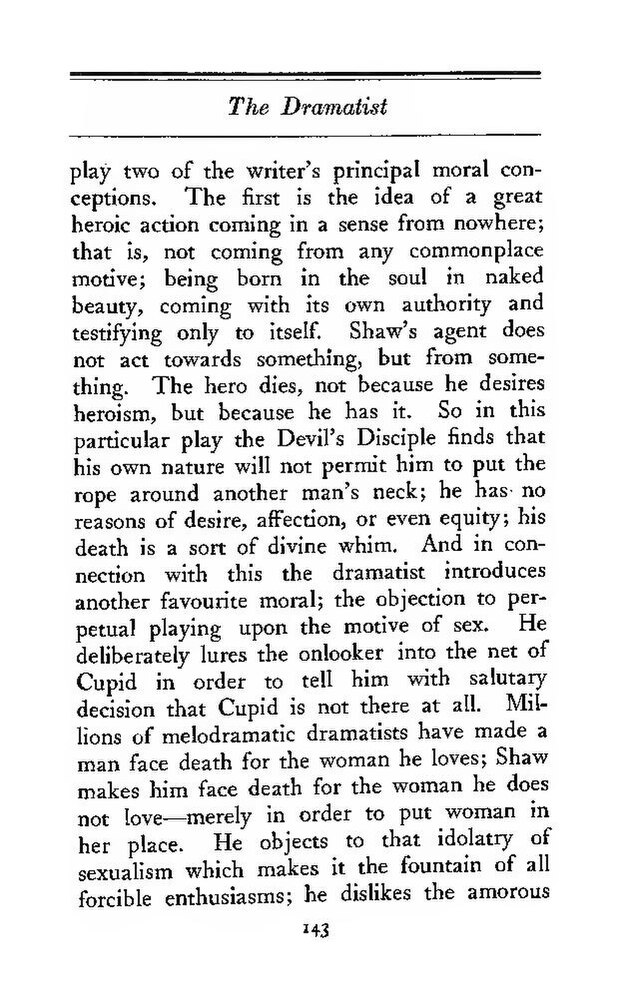play two of the writer's principal moral conceptions. The first is the idea of a great heroic action coming in a sense from nowhere; that is, not coming from any commonplace motive; being born in the soul in naked beauty, coming with its own authority and testifying only to itself. Shaw's agent does not act towards something, but from something. The hero dies, not because he desires heroism, but because he has it. So in this particular play the Devil's Disciple finds that his own nature will not permit him to put the rope around another man's neck; he has no reasons of desire, affection, or even equity; his death is a sort of divine whim. And in connection with this the dramatist introduces another favourite moral; the objection to perpetual playing upon the motive of sex. He deliberately lures the onlooker into the net of Cupid in order to tell him with salutary decision that Cupid is not there at all. Millions of melodramatic dramatists have made a man face death for the woman he loves; Shaw makes him face death for the woman he does not love—merely in order to put woman in her place. He objects to that idolatry of sexualism which makes it the fountain of all forcible enthusiasms; he dislikes the amorous
143
